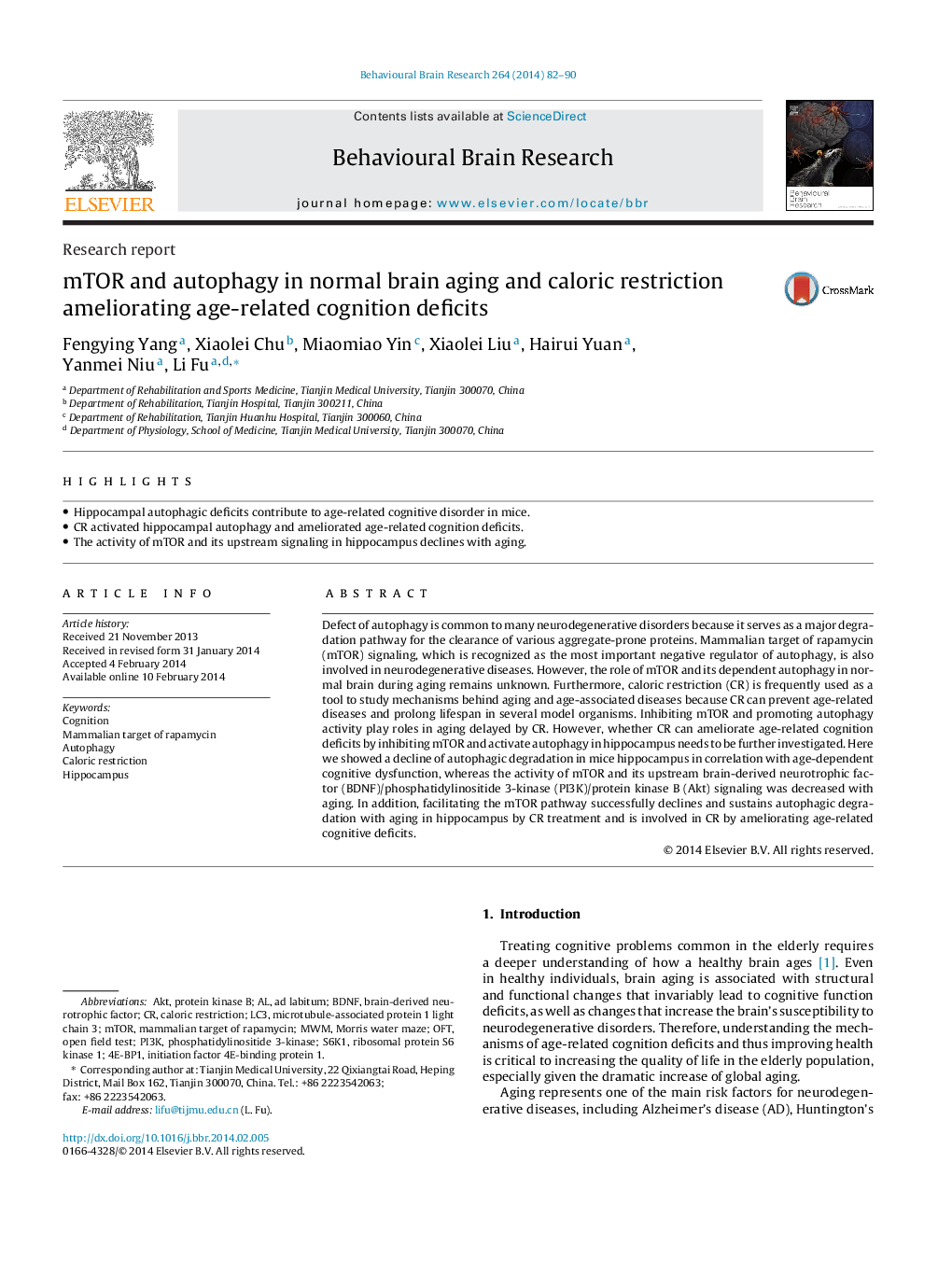| Article ID | Journal | Published Year | Pages | File Type |
|---|---|---|---|---|
| 6258251 | Behavioural Brain Research | 2014 | 9 Pages |
â¢Hippocampal autophagic deficits contribute to age-related cognitive disorder in mice.â¢CR activated hippocampal autophagy and ameliorated age-related cognition deficits.â¢The activity of mTOR and its upstream signaling in hippocampus declines with aging.
Defect of autophagy is common to many neurodegenerative disorders because it serves as a major degradation pathway for the clearance of various aggregate-prone proteins. Mammalian target of rapamycin (mTOR) signaling, which is recognized as the most important negative regulator of autophagy, is also involved in neurodegenerative diseases. However, the role of mTOR and its dependent autophagy in normal brain during aging remains unknown. Furthermore, caloric restriction (CR) is frequently used as a tool to study mechanisms behind aging and age-associated diseases because CR can prevent age-related diseases and prolong lifespan in several model organisms. Inhibiting mTOR and promoting autophagy activity play roles in aging delayed by CR. However, whether CR can ameliorate age-related cognition deficits by inhibiting mTOR and activate autophagy in hippocampus needs to be further investigated. Here we showed a decline of autophagic degradation in mice hippocampus in correlation with age-dependent cognitive dysfunction, whereas the activity of mTOR and its upstream brain-derived neurotrophic factor (BDNF)/phosphatidylinositide 3-kinase (PI3K)/protein kinase B (Akt) signaling was decreased with aging. In addition, facilitating the mTOR pathway successfully declines and sustains autophagic degradation with aging in hippocampus by CR treatment and is involved in CR by ameliorating age-related cognitive deficits.
